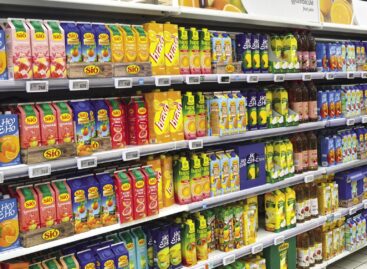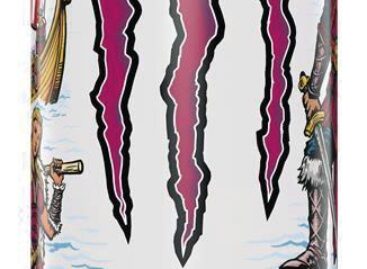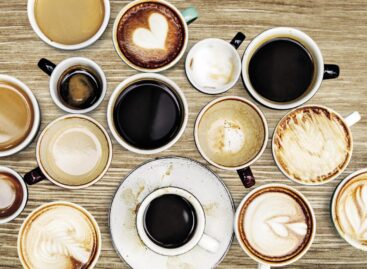Stormy times, golden harvests
This article is available for reading in Trade magazin 2024/10
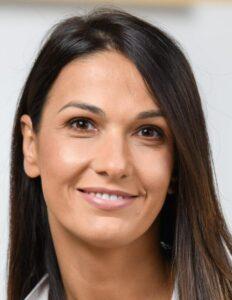
Bojana Nenadovic
marketing director
Coca-Cola HBC
Magyarország
Bojana Nenadovic, marketing director of Coca-Cola HBC Magyarország says that in 2023 the total fruit juice market showed a downward trend in volume sales compared to 2022, while value sales were up.
“High fruit content juices outperformed the market average in both value and volume sales, so their relative weight in the total juice category grew”,
she adds citing NIQ data.
As can be seen from NIQ data, in 2024 the FJND market is virtually unchanged in value terms compared to the same period in 2023, with an 8.5% plunge in volume sales.
Growing difficulties
Coca-Cola HBC Magyarország rolled out high fruit content products with added vitamins under the Cappy brand in late 2023 and early 2024. These include Cappy Apricot with vitamins C, E and zinc to help maintain immunity, Cappy Multivitamin with vitamins C and B6 to help maintain vitality, Cappy Peach and Cappy Pineapple, as well as Cappy Strawberry with magnesium and Cappy Pear with vitamin D and calcium for antioxidant properties.

Emese Szász-Bognár
communications and
media manager
SIÓ-Eckes
Emese Szász-Bognár, communications and media manager of Sió – Eckes Kft. adds that Europe is receiving around 25% less oranges from the US (where virtually 100% of the orange raw material comes from) than before – and at very high prices.
Shrinking production areas and bad weather conditions have made raw material supply increasingly uncertain and unpredictable, leading to significant price hikes for many fruits.
Strengthening discounters
As NIQ’s January-July figures indicate, in 2024 private label product sales have declined marginally in volume but they are still better than the overall market.
Sió – Eckes Kft.’s expert explains that the upturn of the past years seems to be slowing down for private labels, as discounters are also more open to branded products in order to achieve an optimal assortment mix. Discounters continue to be the most dominant players in the total fruit juice market, selling 39 litres from every 100 litres of juice sold in 2023.
Emese Szász-Bognár’s experience is that the need for vitamin intake is no longer the only priority, as there is also a growing focus on strengthening the immune system, contributing to healthy bones and protecting the heart. This is why the company’s hohes C PLUS and hohes C SuperShots product lines offer a wide range of solutions, contributing to the well-being and balanced nutrition of our consumers. Functionality and vitamin content are also becoming increasingly important in juices for children: Vitatigris fruit purée is the only one in the branded fruit purée category that contains extra vitamins (vitamin C and D) and fruit drinks are enriched with various vitamins.
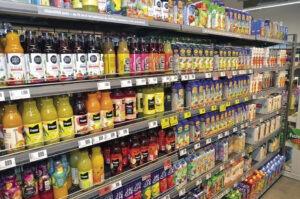
Juices with high fruit content performed above the market average both in terms of value and volume sales
This year Maspex Olympos Kft. launched new vitamin-fortified functional fruit drinks under its Topjoy brand, available in three flavours with 20% fruit content, called Immunity, Vitality, and Fitness.

Vilmos Várkonyi
group brand manager
Maspex Olympos
“Kubu’s new product this year is a 200ml product with a drinking straw, in carrot-apple- raspberry and carrot-apple-peach flavours, made with honey and rich in vitamins A and C”,
says Vilmos Várkonyi, brand manager of Maspex Olympos Kft.
With consumer needs in mind
Márka Üdítőgyártó Kft.:
“Offering value for money is now even more a key factor influencing the product choice. Our Márka Fruitica fruit drinks are available in 1.5-litre family size and also in 0.5-litre size for mobility”.
Multivitamin flavour in 1.5-litre and 0.5-litre formats is the most popular Márka Fruitica product. Their new flavour is an exciting pomegranate and cherry combination, called PomCherry.

Zsuzsanna Papp
marketing manager
Szobi
Szobi Italgyártó Kft. has upgraded and expanded its Golden Valley 100% fruit range: the popular beetroot has been joined by multivitamin and rosehip varieties.
“We try to adapt to market needs and expectations in both packaging and flavours. The result of this is our recently launched Szobi Powdered Drink Mix range, which is specifically aimed at lower-income customers and has been very well received”,
says marketing manager Zsuzsanna Papp.
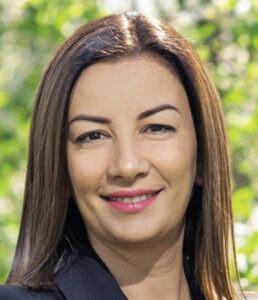
Veronika Szabóné Karcza
head of division
DÉR Juice
“More and more consumers have health problems and are looking for products from controlled and clean, preservative-, additive- and sugar-free farming, possibly with pro- and prebiotic ingredients”,
informs Veronika Szabóné Karcza, head of division at DÉR Juice Processing Plant.
Traceable ingredients
Product versions with high natural nutrient content are the most sought-after in the DÉR Juice range: apple-beetroot juice with 70% beetroot is chosen for its iron, folate and antioxidant content, while the unique 100% fruit sour cherry juice is also appealing for the flavonoids and sleep-promoting melatonin in sour cherry. Besides fruit juice, the company plans to introduce other fruit and vegetable-based functional products. Their products are fully traceable, so shoppers can know exactly where the ingredients come from.

Katalin Sarkadi
head of marketing
Funky Forest
The Funky Forest brand was launched in Hungary a few years ago.
“Many people are looking for and appreciate the high quality of our 100% pressed juices and smoothies, and our key partners (breakfast bars, bakeries, cafes and traditional retail chains, etc.) serve Funky Forest’s vegetable and fruit only, additive-free juices to their refined clientele” ,
says head of marketing Katalin Sarkadi. The company regularly offers dietician advice, tips and ideas to Funky Forest customers. //
Products with fruit content below 25% are becoming popular
According to the NIQ retail index, 160 and a half million litres of fruit juice, in the value of HUF 95bn ended up in our shopping baskets between July 2023 and June 2024.


Guest writer:
Zsófia Égi
jr. analytic insights
associate
NIQ
This was a 4% rise in value compared to the same period of the previous year. However, volume sales were down 11% as the category was hit by an average price growth of 17%. With an increase of 1 percentage point, manufacturer brands accounted for 70% of sales – values sales of these were up 5%, but volume sales were down 9%. As for the different segments, nectar sales decreased by 19% in value and 29% in volume. The main beneficiaries of this were drinks with fruit content below 25%, the value share of which expanded from 32% to 38%: there was a double-digit sales growth in value and no change in volume. Sales of 1-litre or bigger products stagnated in value and reduced by double digits in volume. //
Dynamic changes in the fruit juice market
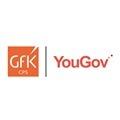

Guest writer:
Dorottya Csenge Brenner
analyst
CPS GfK-YouGov
The average price of fruit juices soared by 47% in the first half of 2024 compared to the first half of 2022. Low fruit content (maximum 20%) products are now purchased by two-thirds of Hungarian households, overtaking 100% fruit juices which are bought by 63% of households. While 100% juices stabilised at around two-thirds of the volume of juice purchased, juices with a maximum fruit content of 20% increased their volume share from 38% to 44% in 4 semesters. About one-fifth of the total fruit juice offering disappears every 6 months and is replaced by new products in similar numbers. //
Related news
A change of era in the glass
🎧 Hallgasd a cikket: Lejátszás Szünet Folytatás Leállítás Nyelv: Auto…
Read more >Monster Viking Berry
🎧 Hallgasd a cikket: Lejátszás Szünet Folytatás Leállítás Nyelv: Auto…
Read more >Experience instead of routine
🎧 Hallgasd a cikket: Lejátszás Szünet Folytatás Leállítás Nyelv: Auto…
Read more >Related news
Farewell day at the 60th anniversary EuroShop trade fair
🎧 Hallgasd a cikket: Lejátszás Szünet Folytatás Leállítás Nyelv: Auto…
Read more >NAV: Women’s Day inspections begin
🎧 Hallgasd a cikket: Lejátszás Szünet Folytatás Leállítás Nyelv: Auto…
Read more >


